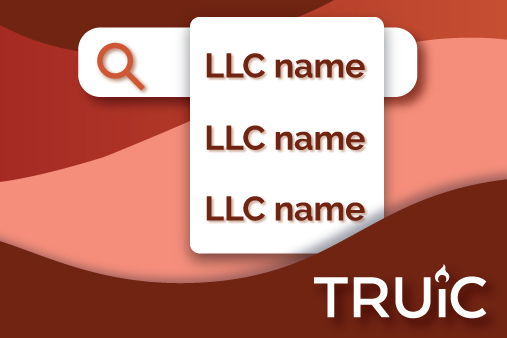What Small Business can I Start With No Money?
Want to know what small businesses you can start with no money? How about how to start those businesses? We can help. In this article, we’ll explain the best businesses you can start with no money, provide you with how to start those businesses, and what the pros and cons are of each idea.

Top 8 Small Businesses to Start With No Money
YouTube Business
Some YouTubers make fortunes online by creating content the world wants to see. If you like creating videos and connecting with an audience online, YouTube may be the perfect entrepreneurial vehicle for you. YouTube is the second-largest search engine in the world next to Google, meaning there’s plenty of opportunities for someone to create a channel and start profiting through monetization of the channel.
As you grow your small business, you can invest in more expensive technology to help make your channel even better.
The key to profiting on YouTube is to create content that people want to watch. The longer you stick with YouTube, the more subscribers you’ll get. The more subscribers you have, the more money YouTube will pay you through their ad revenue program.
There are other ways of monetizing your YouTube channel besides just ad revenue. You can sell products by promoting them on your channel. You can sell other people’s products through affiliate marketing. You can advertise other people’s businesses on your channel where they pay you for doing so.
How to start a YouTube business:
- Start an account on YouTube.
- Decide the type of content you want to popularize.
- Begin making videos and uploading them to your channel.
- Fulfill YouTube’s ad revenue requirements.
- Build a following of loyal subscribers.
- Monetize your channel by promoting your products.
- Monetize your channel by promoting other people’s products.
Pros:
- Easy to create videos
- Can be done from anywhere
- Create videos on topics that you enjoy,
- Multiple streams of income opportunities
Cons:
- It takes time to build an audience
- Income doesn’t come straight away
- Equipment can get expensive
Blogging Business
If you enjoy writing on topics you’re passionate about, then blogging may be a great free online business for you. Blogging is a great way to share information online with others in a casual way that speaks informally to the person visiting your blog.
Blogs work by giving you a platform to present information to people interested in the topic you’re presenting on. New content gets added to the top while older content gets pushed down. In this way, content stays fresh and updated, though older content is always available to read too.
The way you make money as a blogger is by promoting your products and services or other people’s products and services. There are many options for monetizing a blog. You can even sell ad space on your blog and make money this way.
How to start a blogging business:
- Create a free blog on platforms like WordPress or Blogger.
- Customize the blog’s design to match your branding.
- Begin writing blog posts.
- Start promoting your blog.
- Build a following of loyal followers.
- Start monetizing your blog by promoting products.
- Charge other businesses to promote their products.
Pros:
- Free to get started
- Work from anywhere
- Blog anytime
Cons:
- Takes time to monetize
- Can be time-consuming
Freelancing Business
If you like to work independently, then freelancing may be the perfect online business model for you. The easiest way to get started in freelancing is by signing up on some freelance marketplaces and getting straight to work doing various online tasks.
There are so many things you can do as a freelancer. You can write articles, troubleshoot website problems, develop mobile apps, work in customer support roles, and even be a virtual assistant. Freelancing is a great way to generate income in a relatively short period of time. The best part about being a freelancer is you can work remotely anywhere in the world.
How to start a freelancing business:
- Search for different freelance marketplaces. The biggest freelance marketplace is currently UpWork, but you should also consider platforms like
- Truelancer, Freelancer, Fiverr, and PeoplePerHour.
- Sign up as a freelancer on the platforms you decide to partner with. Instructions for signing up will be located on the platform.
- Create a profile explaining your focus (e.g., copywriting, web design, app development, etc.).
- Bid on different jobs for free.
- Get hired and begin working.
- Submit your work for payment.
Pros:
- Independent work
- Flexible schedule
- Lots of freelance options
- Work from anywhere
- Decide on what jobs you want to do
- Negotiating rates
- Fast profits
Cons:
- Work can be time-consuming
- Deadlines can be strict
- Negative ratings can inhibit future work opportunities
There are lots of freelance opportunities. The three most popular are writing, designing, and developer opportunities.
Writer
As a freelance writer, you’ll create content for the web, for marketing materials, and many other mediums. Seasoned writers, with years of experience, can make great incomes working as freelancers.
Designer
As a freelance designer, you’ll create a plethora of individual design assets for companies and individuals seeking your services. Great designers stand out from the crowd, thus getting more work and making more money.
Developer
As a freelance developer, you’ll engineer websites, mobile apps, and software for companies. This is time-consuming work that requires time and attention in order to become fluent in programming languages such as HTML, CSS, and JavaScript. Developers can make six-figures a year working independently as freelancers.
Affiliate Marketing Business
Affiliate marketing is when you market a product or service online and earn a commission off that product after a sale is made. Amazon, the world’s largest online retailer, has an affiliate program where they let you promote anything for sale on their website and earn a commission as soon as someone clicks on the affiliate link they provide you and makes a purchase.
If you have an audience, you have the potential to make a good income as an affiliate marketer. There are many avenues to take with affiliate marketing, such as promoting on YouTube, through your blog, through social media channels, and practically anywhere else people gather online.
How to set up an affiliate marketing business:
- Sign up for an affiliate account with merchants you wish to promote.
- Wait to be approved through email.
- Copy and paste affiliate links in places people visit online, promoting the product.
- Get paid when people click on affiliate links and make purchases.
Pros:
- Passive income opportunity; make money even while you sleep.
- No limit to how much you can make.
- Not a lot of work involved — just copy and paste.
- Work from anywhere.
- More income over time.
Cons:
- Affiliate accounts come with conditions and terms.
- Long-term game — you might not make a lot of money right away.
- Helps if you have an audience.
Drop-Shipping Business
Drop-shipping is when you sell a product that you do not currently own or have in your possession. Once the sale comes in, you purchase the product through another merchant and have the product sent to your customer. The way you make money as a drop shipper is by charging more than the other merchant charges for their product and keeping the difference.
Although there is some debate as to the legitimacy of some drop-shipping businesses, it is simply a type of fulfillment service. Big ecommerce companies like Amazon and eBay allow their merchants to use drop-shipping services.
How to set up a drop-shipping business:
- Research drop-shipping companies online to partner with.
- Protect yourself with a drop-shipping agreement contract.
- Find customers through different avenues (e.g., mail-order catalogs, etc.).
- Sell the drop shipper’s products to your customers.
- Purchase the product through the drop shipper, having them sent to your customer.
- Keep the difference between what you charged your customer and what the drop shipper charged you.
Pros:
- Don’t have to store products
- Don’t have to buy products until you make a sale
- It can be quite lucrative
Cons:
- Finding customers may be difficult and time-consuming
- Product markups may not create substantial wealth
Online Retail Business
As an online retailer, you’ll facilitate the sale of goods and services over the internet, allowing customers to search, select, and make purchases. Achieving this can be done through many online mediums such as auction sites like eBay, large online retailers like Amazon, an ecommerce website that you own, social media, and more.
How much you earn as an online retailer depends on several factors such as how well you market your online presence, the feedback and ratings you receive from customers, and how in-demand your products are for customers.
How to start an online retail business:
- Start with an ecommerce website, Amazon store, eBay store, or a mixture of storefronts.
- Decide which products you wish to sell.
- Source products from reputable suppliers that offer good wholesale value.
- Upload product images into your store(s), writing product descriptions for each product.
- Begin marketing your products using social media, a YouTube channel, and other places online where customers can be found.
- Start making sales.
- Continue improving your sales efforts by learning more about small business, marketing, sales, and consumer behavior.
Grow your small business into a solid online presence.
Pros:
- Easily expandable
- Less overhead than traditional retail
- Larger reach opportunities than traditional retail stores
- Work from anywhere
- No cap on income potential
- Passive income opportunity; make money while you sleep
- Easier to sell than a traditional retail store
Cons:
- It takes time to generate solid income
- Lots of competition
- Requires patience and stamina to build
- May require some technical expertise
- Some markets may require high upfront costs
App Development Business
App developers are software engineers who have a background in coding languages like Java. Because there is a high level of technical expertise needed to generate apps, you’ll have to take a course or boot camp in coding. You may also need to take a small business course to understand more about the intricacies of business.
The good news is that knowledgeable developers can earn $100,000 or more per year developing mobile apps for companies and clients.
How to start an app development business:
- Reach out to tech companies and businesses who may want to hire your company to develop apps for their business.
- Reach out to more companies and keep building while your team starts building apps for clients.
- As your business grows, take some of your profits to hire sales professionals to further your business development efforts.
- Grow your business larger and larger, creating more wealth for your business and self.
Pros:
- Work independently and with a team
- Utilize your creativity and critical thinking skills
- Work from anywhere
- Make a substantial income
Cons:
- Requires education and technical expertise
- Competitive field
- Requires constant learning
- Education can be expensive
Business Coaching Business
Business coaches work with top-level executives to help them become their best selves. This includes tasking them with assignments meant to engage them in taking action steps that will grow a business. Part of being a business coach is helping entrepreneurs and executives improve their mindset, emotional well-being, daily processes, and leadership development.
To become a successful business coach, you’ll need to have a thorough understanding of business, instructional design, communication, and know-how to grow a business yourself. It helps to have a proven track record of success coaching others but also growing businesses.
How to start a business coaching business:
- Start a website to showcase your skills and what you can offer executives and entrepreneurs. Make sure to list your rates and be clear on your approach to coaching and how you operate.
- Market your business online through YouTube, social media, and LinkedIn.
- Start coaching clients who pay for your services.
- Keep growing your business.
Pros:
- Work remotely online and over the phone from anywhere
- Generate good income (between $200 and $500 per hour)
- Become a business expert
- Network with top entrepreneurs and business executives
Cons:
- Competitive industry
- May require working with lower-paying clients until you’re better established
- Requires business competencies and education and/or experience
- Business education can be costly
- Have to keep finding and soliciting new clients
- You must be an expert at selling yourself
Start a Business in Your State
- Alabama
- Alaska
- Arizona
- Arkansas
- California
- Colorado
- Connecticut
- Delaware
- Florida
- Georgia
- Hawaii
- Idaho
- Illinois
- Indiana
- Iowa
- Kansas
- Kentucky
- Louisiana
- Maine
- Maryland
- Massachusetts
- Michigan
- Minnesota
- Mississippi
- Missouri
- Montana
- Nebraska
- Nevada
- New Hampshire
- New Jersey
- New Mexico
- New York
- North Carolina
- North Dakota
- Ohio
- Oklahoma
- Oregon
- Pennsylvania
- Rhode Island
- South Carolina
- South Dakota
- Tennessee
- Texas
- Utah
- Vermont
- Virginia
- Washington
- Washington D.C.
- West Virginia
- Wisconsin
- Wyoming

